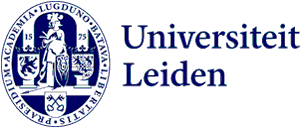
More Dutch at the university? ‘We desperately need internationals’
He did an English-taught degree, completed a master’s abroad and now teaches on an English-taught programme at the Campus The Hague. Jan Meijer is the definition of an international researcher and he’s proud of it.
He teaches on the Bachelor’s in International Relations and Organisations in The Hague, standing almost every day in front of a group of ambitious, generally international students. We asked him about the importance of internationalisation at our university and of English-taught programmes.
Is Leiden University a Dutch or an international university?
‘If you ask me, Leiden University is a well-known university in the Netherlands with lots of Dutch programmes and a long Dutch history. But it clearly also has an international profile. With Campus The Hague the university appeals to an international audience without losing the Dutch element. I think Leiden University is both. I don’t see why one needs to rule out the other.’
You’re a lecturer on an English-taught programme. What are the dynamics in a real ‘international classroom’?
‘In my seminars there are 20 to 30 students with at least ten if not 15 nationalities, many from within Europe but also some from Asia and South America. Students who do this programme have explicitly chosen an English-taught programme. They have given careful thought to this decision and are often ambitious and motivated to get the most out of their studies. It’s quite a big step to go and study abroad. I know from my own experience. You leave your family, friends and familiar surroundings behind.
‘An international seminar like this sparks interesting discussions, for example when we spoke about populism. Dutch students had a clear frame of reference from Dutch politics. But the situation is very different in the Baltic States and a student from Lithuania could explain that properly. The discussion offered new insights but above all it broadened the conversation.’
It’s not that long ago that you yourself were a student who chose an international programme. How did it benefit you?
‘To begin with, I’m now fluent in English and no matter how you look at it: science is international and the lingua franca is English. If you want to exchange knowledge with researchers from all over the world, English is where it starts. So I consciously chose to do my master’s abroad.’
‘An international degree did a lot for my personal development’
‘But this international degree has had other benefits too. I’m half Dutch and half Polish. At secondary school, I was sometimes ridiculed for that, sometimes worse. I felt a certain distance. I wasn’t really Dutch but nor was I Polish. But when I went to university suddenly lots of other students had a foreign background I started to feel much more comfortable. The international degree did a lot for my personal development.’
There are calls to reduce the number of English-taught programmes at Dutch universities. What’s your opinion?
‘I do understand that there has to be enough room for Dutch students at our university. But international experience is also really beneficial to our Dutch students. If you want to keep the quality of the education you provide high, you need lecturers from abroad – alongside the Dutch ones – because to reiterate: science is international by definition.
‘It would be a great shame to lose all those talented international colleagues because of the language. They want to live here, they want to work here and they want to devote their efforts to our students. Why would we want to give that up?’
Text: Tim Senden
Main photo: stock photo of students at Campus The Hague
